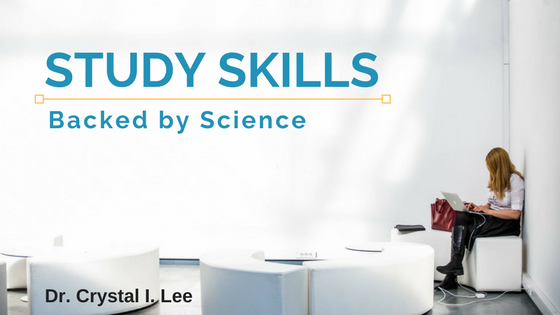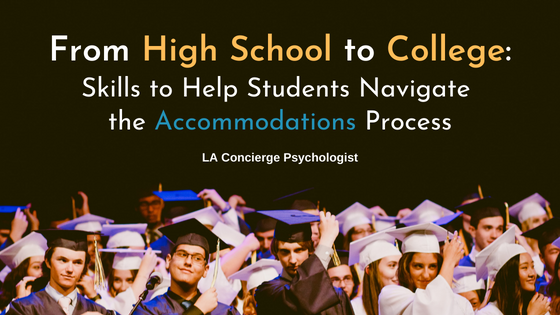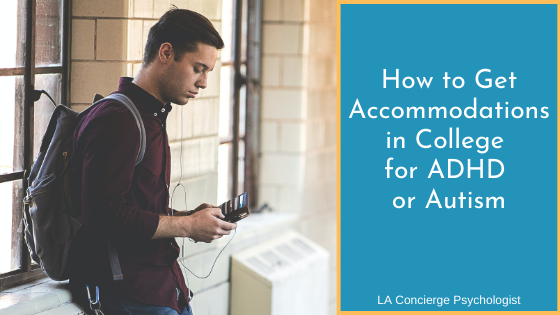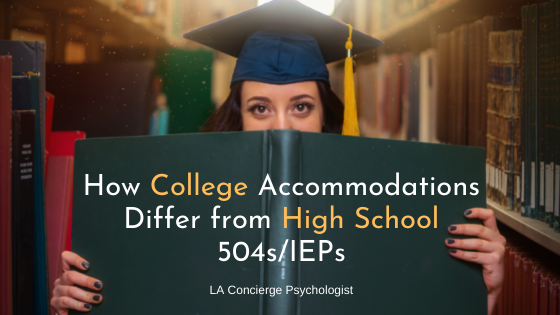As a psychologist that works with lots of college students, I see how important study skills are. Many of my clients discover that their high school study skills didn’t set them up for success in college. Even though they are capable students, they find themselves struggling in class. They become demoralized, their self-esteem takes a hit, and they may even find that their academic struggles stir up anxiety or trigger a depressive episode.
Fortunately, as a clinical psychologist, I studied learning and memory. If my clients are struggling, I give them a few research-backed study tips and refer out to a great educational therapist or skilled tutor if they need more specialized support.
So what are my favorite scientifically-grounded study skills?
Study in a Talking-Free Environment
For my clients who love studying in coffee shops, this is a hard suggestion for them to take. They argue that background noise helps them focus. That’s fine and dandy, but make sure the background noise doesn’t involve people talking. Studies show that hearing verbal content (i.e., words) in the background interferes with learning new content if the content is also language-based. Considering that any studying you’re doing will be language-based, better to stay away from social coffee shops or listening to music with lyrics.
Learn Material in Your Own Words
You may have heard about the push to have students be engaged learners instead of rote learners. When a student is rote learning, they’re basically just memorizing facts. They’re not engaging with the material and processing it.
Imagine trying to memorize information that just looks like random symbols. Now imagine trying to memorize information that is in English and actually has meaning to you. So instead of trying to memorize your professor’s words verbatim, “translate” your professor’s content into content that’s meaningful to you.
Learn Material in Multiple Ways
Remember that old saying that some people learn best verbally and others learn best visually? Research actually shows that people learn best when it’s presented and learned in varying ways. That’s because visual material uses one part of the brain, audio material uses another part of the brain, and kinesthetic learning uses yet another part of the brain.
By engaging numerous systems in your brain while learning, you’ll have multiple pathways to tap into when trying to recall the information later. So, even if you’re a very visual learner, throw in some language-based or kinesthetic-based methods into the mix for optimal learning.
Connect New Material with Already Learned Material
By making connections between material you’re trying to learn and material you’ve already successfully learned, you’re leveraging the strength of these already established pathways in your brain to help the new information “stick”.
This study skill also helps organize the material in your mind, deepens your understanding of the material, and gives you yet another pathway to tap into when trying to recall information. A win-win-win!
Distribute Your Studying
This is the opposite of cramming. Whereas cramming has you trying to stuff as much learning and memorization as possible into a short period of time, distributed studying spreads out the material over a prolonged period of time.
Test Yourself Periodically
Testing yourself is a great way to see if the material you’re trying to learn and remember is actually sinking in. When you pair this with distributed studying, you’ve got a winning strategy for long-lasting learning.
How do you do that? Let’s use an example to make this more concrete. Pretend you have midterm for your introductory Spanish class. You might study all of the nouns on one day, making sure to quiz yourself to test your knowledge. Then a couple of days later, you test yourself of those nouns again to assess how much information you retained. You might have forgotten a few, so you review the nouns and keep quizzing yourself. That day, you also add in some verbs to study. You quiz yourself on the verbs a few days later but don’t test yourself on the nouns again for five days. Then, you continue slowly studying small chunks of material and quizzing yourself while you study. You also make sure that you wait longer times to quiz yourself on already studied material. So wait two days, then five days, then a week.
Click here for more information on College Transition and Gap Year Consultation.
Find that your academic struggles are making you more anxious, depressed, or isolated? Send us a message or book a free 20 minute consultation call with Dr. Barajas or Dr. Goldman to see how we can help.




